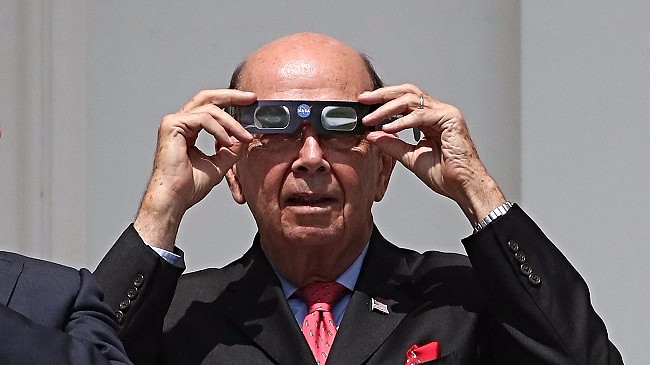
Before Wilbur Ross was confirmed by the U.S. Senate with a vote of 72 to 27, the newly appointed commerce secretary told his committee inquirers, “I intend to be quite scrupulous about recusal and any topic where there is the slightest scintilla of doubt.” Senate Minority Leader Chuck Schumer (D-NY) briefly protested the confirmation, telling his colleagues White House’s refusal to release some of Ross’ written answers to the Senate’s questionnaire was troubling. Even so, the matter was altogether forgotten in the ensuing rush of administrative scandals… until Forbes dug a little deeper into the secretary’s hidden finances.
As it turns out, Ross “[left] more than $2 billion off of his financial disclosure report — and therefore out of the public eye” when he answered the Senate’s questionnaire and filed his paperwork in early 2017. And to make matters worse, the commerce secretary only revealed the existence of the missing assets to Forbes when the magazine asked him why the previously reported numbers didn’t match up with what “he had previously told the magazine he owned”:
Three months before the 2016 election, Ross’ assistant described his portfolio to Forbes as a mix that would theoretically throw off plenty of cash: $1.3 billion of municipal bonds, $1.3 billion worth of interests in general and limited partnerships, $550 million of equities, $225 million of art, $180 million in cash and $120 million worth of real estate.
After initially determining Ross’ missing assets to total $3.7 billion, Forbes guestimated his fortune to be “a more conservative $2.9 billion.” Either way, the fact that the confirmed cabinet member didn’t report this in his initial disclosure form raises troubling questions, like why he didn’t mention them in the first place. That, or what — if any — federal laws did he break as a result of withholding this information. However, Ross insists no issue exists since he is “not the beneficiary of them” because “[t]his is set up for children and things like that.” Yet when asked his children were the only beneficiaries of the missing money, Ross admitted some were “third parties,” adding: “It’s a complicated story.”
(Via Forbes)
